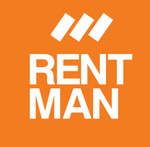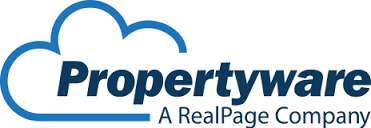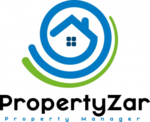Description

OpenEstate

Telos
Comprehensive Overview: OpenEstate vs Telos
As of my last update, there is no specific product known as "OpenEstate, Telos" that I can identify. It appears there might be some confusion or a need for clarification regarding the product name or the context in which it's used. However, I can provide hypothetical examples or general insights based on existing technologies and markets if there was a mistake or misunderstanding.
If "OpenEstate" and "Telos" refer to separate entities or products, please provide additional context or clarify their industry or primary functions. Below, I provide a general framework for how you might approach analyzing products or services in similar contexts:
Hypothetical Analysis Framework for OpenEstate and Telos
A) Primary Functions and Target Markets
-
OpenEstate:
- Primary Functions: Assuming it is related to real estate technology, OpenEstate might function as a real estate management platform, facilitating activities like property listings, CRM for real estate agents, property management systems, and data analytics for market trends.
- Target Markets: This would typically target real estate agents, property managers, real estate investors, and homebuyers or sellers looking for an integrated platform to manage or search for properties.
-
Telos:
- Primary Functions: If "Telos" refers to a blockchain or technology platform, its primary functions might include smart contract execution, decentralized identity management, or providing scalable blockchain solutions for various industries.
- Target Markets: This could target developers, enterprises seeking blockchain solutions, financial institutions, and sectors like supply chain, healthcare, or identity verification that require secure and transparent transaction processing.
B) Comparison in Terms of Market Share and User Base
- OpenEstate might compete with traditional real estate platforms like Zillow, Realtor.com, or specialized CRM and property management software, occupying a niche specific to its innovative features or user-friendly interface if that applies.
- Telos would compete with other blockchain platforms like Ethereum, Binance Smart Chain, or Solana, depending on its technical capabilities, user adoption, transaction speed, and developer community support.
Market share and user base would depend on factors like:
- Adoption Rate: How quickly new users or industries adopt the platform.
- Partnerships: Collaborations with other firms or integration with existing systems.
- Community and Support: Size and engagement of the user and developer community.
C) Key Differentiating Factors
-
OpenEstate:
- User Interface and Experience: Ease of use and intuitive design could set it apart.
- Integration Capabilities: Ability to seamlessly integrate with other real estate tools or data sources.
-
Telos:
- Transaction Speed and Scalability: Efficiency in handling large volumes of transactions.
- Security Features: Advanced security measures and fraud prevention protocols.
- Ecosystem and Developer Support: Incentives for developers and a robust ecosystem for DApp development.
Conclusion
Without specific information about "OpenEstate, Telos," these frameworks provide a speculative approach based on typical functionalities and market dynamics of similar technologies. For accurate analysis, more detailed information about the product features, existing competitors, and specific use cases would be essential. If you have more context or if it relates to a specific industry trend or technology, please provide additional details.
Contact Info

Year founded :
Not Available
Not Available
Not Available
Not Available
Not Available

Year founded :
2016
Not Available
Not Available
Hong Kong
Not Available
Feature Similarity Breakdown: OpenEstate, Telos
As of my last update in October 2023, I don't have specific information about products called "OpenEstate" and "Telos." They might be niche products, newly released, or specialized tools that haven't been widely documented in the sources I have access to. However, I can guide you on how to conduct a feature similarity breakdown if you have access to these products:
a) Core Features in Common
To determine the core features that OpenEstate and Telos might have in common, consider typical functionalities found in similar software solutions. For example, if these are property management platforms, core shared features might include:
- Property Listing Management: Ability to create, manage, and showcase property listings.
- CRM Functionality: Tools to manage client interactions and customer data.
- Analytics and Reporting: Features that allow detailed reporting and performance analytics.
- Communication Tools: Integrated email, messaging, or chat options for client interactions.
- Calendar and Scheduling: Options for managing showings, appointments, or deadlines.
- Document Management: Features to upload, store, and share relevant documents.
b) User Interface Comparison
To compare the user interfaces ("UI") of OpenEstate and Telos, consider criteria such as:
- Design and Aesthetics: Evaluate the visual design, color schemes, and layout.
- Usability: Assess how intuitive and easy-to-navigate the interfaces are.
- Customization: Look at the flexibility offered to users in terms of interface personalization.
- Mobile Responsiveness: Check how well the interface adapts to different device sizes.
- Speed and Performance: Consider the quickness of page loads and responsiveness of elements.
c) Unique Features
Identify any unique features by examining user manuals, feature lists, or product demos for each software:
-
OpenEstate Unique Features: Look for specialized tools aimed at a niche market, innovative uses of technology like machine learning or blockchain, or integration capabilities with other platforms that aren't offered by Telos.
-
Telos Unique Features: Similarly, identify distinctive features that aren't part of OpenEstate, such as virtual reality property tours, unique AI-driven pricing models, or exclusive access to certain data sets or market trends.
Conclusion
To get the most accurate comparison and breakdown, direct access to official documentation, user reviews, or demo versions of OpenEstate and Telos would be necessary. It may also help to reach out to their respective sales teams for detailed feature comparisons and product presentations.
Features

Financial Tracking
Tenant Screening
Analytics and Reporting
Maintenance Requests
Property Management

Data Security
Reporting and Analytics
User Management
Best Fit Use Cases: OpenEstate, Telos
OpenEstate and Telos are platforms designed to cater to different aspects of business needs, particularly in sectors that require efficient management, transparency, and blockchain integration. Here's a deeper look into the best fit use cases for each:
OpenEstate
a) Best Fit for OpenEstate
-
Real Estate Agencies and Brokerages: OpenEstate is particularly well-suited for real estate agencies and brokerages that need to manage property listings, client interactions, and transactions in an organized and efficient manner. It provides tools that enhance property visibility, streamline communication, and facilitate transaction management.
-
Property Developers: Companies involved in property development can use OpenEstate to manage projects, from land acquisition to sales. The platform can integrate various stakeholders, maintain timelines, and track the progress and expenses involved in property development projects.
-
Real Estate Listings Websites: OpenEstate is ideal for businesses operating real estate listing websites, providing them with robust listing management features, search capabilities, and integration options to widen the market reach.
-
Property Management Firms: For firms managing rental properties, OpenEstate offers features that support tenant management, lease agreements, and maintenance activity tracking, making it a versatile tool for property managers.
Telos
b) Best Fit for Telos
-
Blockchain Projects: Telos is built on blockchain technology, making it a preferred choice for projects that require decentralized applications (dApps), smart contracts, or any blockchain-based solutions. It's particularly suitable for projects that emphasize speed, scalability, and low transaction costs.
-
Supply Chain Management: Businesses looking to implement transparency and traceability in their supply chains can benefit from Telos. The blockchain infrastructure allows for immutable record-keeping, making it easier to track the movement of goods and verify the authenticity of products.
-
FinTech and DeFi Projects: Given its blockchain foundation, Telos is an excellent option for financial technology (FinTech) projects, particularly those exploring decentralized finance (DeFi). It offers secure, transparent transaction processing and smart contract functionality.
-
Gaming and Digital Assets: Telos can be leveraged by gaming companies and platforms dealing with digital assets. Its blockchain can ensure secure and transparent in-game transactions, ownership of digital items, and integration of NFTs.
d) Industry Verticals and Company Sizes
-
OpenEstate caters primarily to the real estate sector and is beneficial for both small and large companies. Small agencies gain from organized listing and client management, while large enterprises benefit from its comprehensive project management features.
-
Telos, with its blockchain-based foundation, cuts across multiple verticals such as supply chain, FinTech, gaming, and more. It generally caters to tech-savvy companies or startups looking to innovate with blockchain technology. Due to its flexible and scalable nature, it can support both small startups that are entering the blockchain space and larger corporations seeking to enhance their operations with decentralized solutions.
In conclusion, OpenEstate targets the real estate sector with a focus on property management, while Telos offers a versatile blockchain solution applicable across several industries that require transparency, security, and decentralization. The choice between them depends on the business's specific needs, industry, and scale of operations.
Pricing

Pricing Not Available

Pricing Not Available
Metrics History
Metrics History
Comparing undefined across companies
Conclusion & Final Verdict: OpenEstate vs Telos
Conclusion and Final Verdict for OpenEstate vs. Telos
In comparing OpenEstate and Telos, the decision hinges on specific user needs, preferences, and the desired feature set. Here's a detailed breakdown to aid in decision-making:
a) Best Overall Value
Considering all factors, OpenEstate tends to offer the best overall value for users who prioritize open-source flexibility and cost-effectiveness. OpenEstate's platform provides a robust set of features for property listing and management, especially appealing to small to medium-sized real estate agencies that can benefit from its adaptable, no-cost model.
b) Pros and Cons of Each Product
OpenEstate:
-
Pros:
- Cost-Effective: Being open-source, it's generally free to use, making it highly appealing for startups and budget-conscious businesses.
- Flexibility and Customization: The open-source nature allows for extensive customization to suit individual business needs.
- Community Support: A vibrant community can provide valuable support and additional functionality through plugins and third-party integrations.
-
Cons:
- Technical Expertise Required: Setup and customization can require significant technical knowledge or resources.
- Limited Official Support: Enterprise-level or immediate support may not be as readily available as with commercial products.
- Variable Reliability: Open-source software can sometimes suffer from inconsistency unless maintained regularly.
Telos:
-
Pros:
- Comprehensive Features: Offers a wide range of integrated features specifically designed for real estate operations, possibly requiring less initial customization.
- Professional Support: Comes with dedicated customer support and regular updates, which can streamline business operations.
- User-Friendly: Typically easier to implement with user-friendly interfaces and documentation.
-
Cons:
- Cost: Generally more expensive, with potential ongoing subscription fees or licensing costs.
- Less Customizable: Customization may be limited compared to open-source platforms unless additional costs are incurred.
- Vendor Dependence: Users may be reliant on the vendor for updates and solutions to problems.
c) Recommendations for Users
-
Budget Constraints: If keeping costs low is critical, or if you have access to technical resources, OpenEstate is a compelling choice. It provides significant flexibility and can be tailored extensively to fit specific organizational needs.
-
Ease of Use and Support Needs: For businesses that prefer a more turnkey solution with reliable support, Telos may be the better option. The cost may be justified by the reduced need for in-house technical maintenance and the assurance of ongoing vendor support.
-
Long-term Strategy: Consider your long-term goals. If your organization plans to scale rapidly, you may need to weigh the extensibility and support options of each platform. OpenEstate offers more flexibility but requires a commitment to continually manage and update the system, whereas Telos provides stability with less hands-on management.
-
Trial and Evaluation: If feasible, trial both platforms. Experiencing the day-to-day operations with each software can provide critical insights into how each will fit your business's workflow.
Ultimately, both OpenEstate and Telos have their unique strengths. The decision should be based on evaluating which attributes align best with your business priorities and operational capabilities.
Add to compare
Add similar companies




